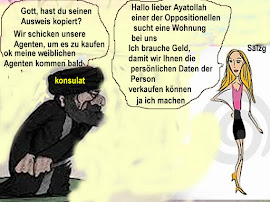Never Again!
I will never forget. Had I arrived in Auschwitz 70 odd years ago myself, I along with my 2 kids age 4 and 7mths would have been sent straight to our deaths. All kids were condemned from the second they arrived. Makes me think of my own. The world must never forget and the world must not let such evil happen again
70 years after emancipation, a Serbian Jewish woman tells the tragic tale of life in a death camp
.
Auschwitz survivor recalls Nazi evil, liberation
70 years after liberation, Serbian Jewish woman tells tragic tale of life in death camp
SARAJEVO, Bosnia-Herzegovina (AP) — The tattoo on her left arm has become unreadable but the habit of reading it aloud in Polish remains strong, seven decades after it first scarred her skin.
Greta Wienfeld Ferusic had to yell A9233, in Polish, for 10 months during the morning lineups at the Nazi-run death camp of Auschwitz, the last time shortly before the Red Army arrived on January 27, 1945, liberating the emaciated inmates. Worldwide events this week are commemorating that agonizing moment in history.
“To physically survive is the easier part,” Ferusic, 90, said during an interview in her Sarajevo living room as she recalled her survival in a camp where more than 1.1 million Jews like her were killed. “What’s important is that you do not go insane. That’s the part you can work on. I kept repeating: I will survive, I will survive.”
Ferusic was 19 when she and her parents, two aunts and an uncle were forced from their homes in Novi Sad, Serbia, and loaded onto a cargo train in April 1944.
Dr. Josef Mengele, known as the Angel of Death, personally separated her from her mother but never performed any medical experiments on her. It was the last time she ever saw her family.
Ferusic credits her survival to the Nazis’ desire to cover up their genocide as the Soviets drew near. German troops destroyed the crematoriums in November 1944, providing a lifeline for Ferusic, who in December told camp authorities she was ill.
“Before November, if you would admit you are sick, there was only one place they would send you,” she said, referring to the crematoriums. But German authorities then turned a barracks beside the crematoriums into a hospital.
Three days before liberation, hospitalized prisoners were told that whoever could walk should move toward a waiting train for evacuation west. Ferusic refused and convinced others to disobey. Most of those who followed orders ended up at the Bergen-Belsen camp in Germany.
For an entire day, no guard entered the hospital. Wrapped in a blanket, Ferusic strolled out to look for food. Corpses lay in the snow. In one of the guards’ rooms, she found a frozen pot of soup and a Nazi soldier who, surprisingly, ran away from her.
When the Red Army arrived, they fed the survivors slowly because too much food, they explained, would kill them. But Ferusic said she couldn’t resist and ate “day and night.”
She weighed just 33 kilograms (73 pounds) when the Russians first weighed her, but reached 43 kilograms (95 pounds) three weeks later, when she hopped on the roof of a train for the long journey home. She hoped to find a surviving relative waiting for her, but all had perished in the Holocaust.
Copyright 2015 The Associated Press.



















.jpg)




























.jpg)











Inga kommentarer:
Skicka en kommentar